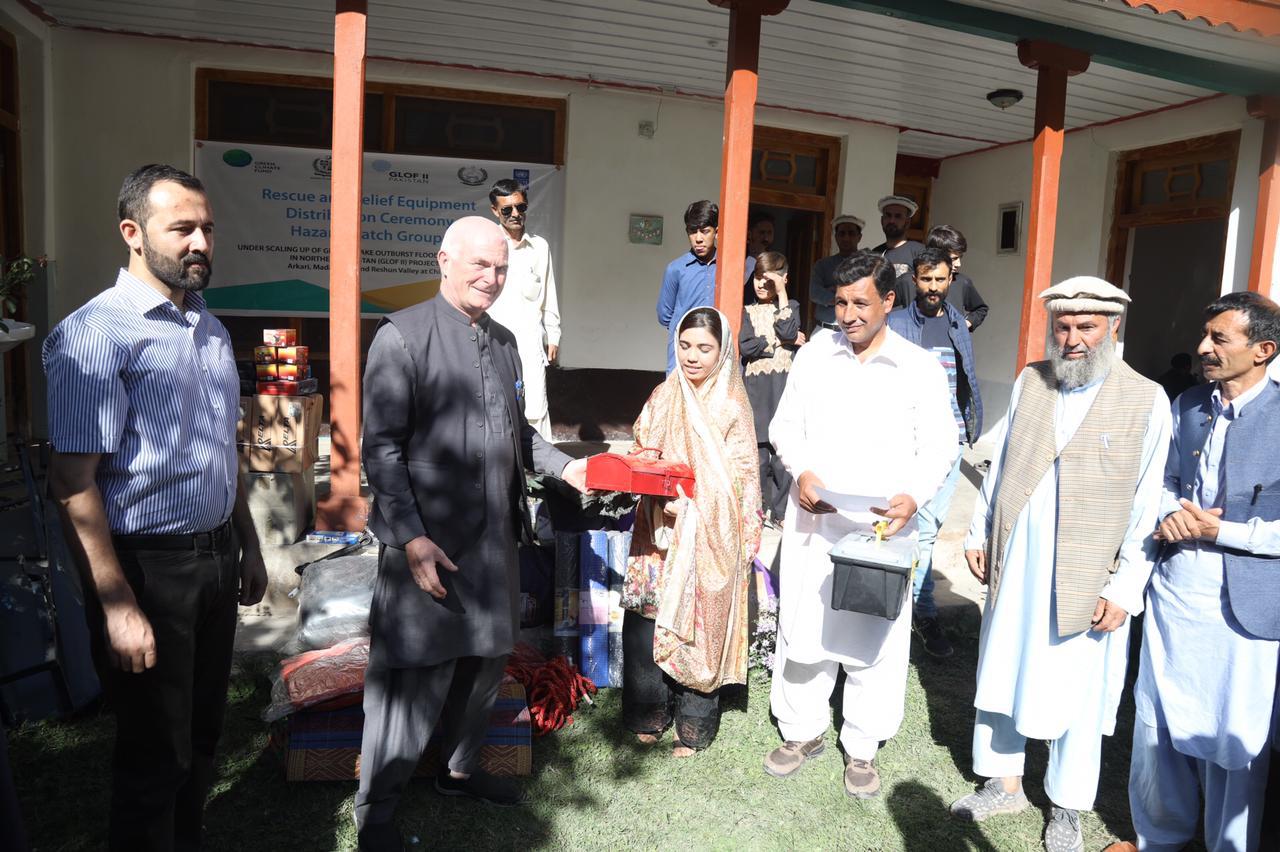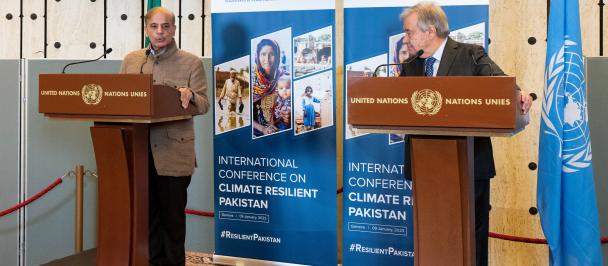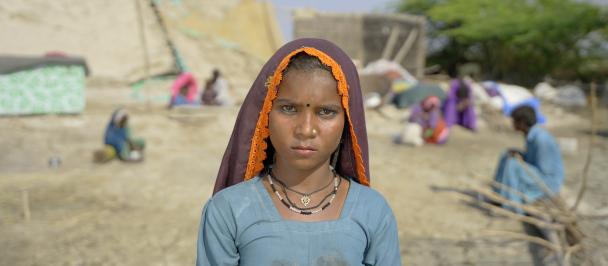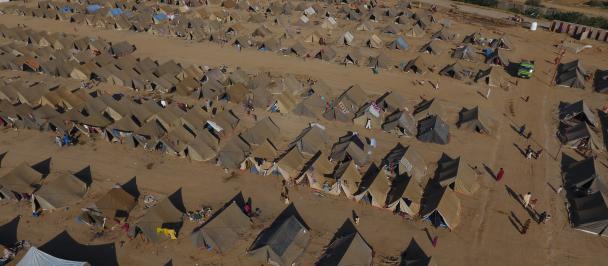UNDP visits Chitral to identify flood recovery and reconstruction needs
September 23, 2022

Chitral, 23 September 2022—A UNDP mission led by the Resident Representative Mr Knut Ostby visited Chitral to meet the flood-affected community and to identify recovery and reconstruction needs.
This year, GLOF incidents compounded with torrential monsoon rainfall increased the water levels in the rivers, causing hill torrents and flash flooding—putting the communities downstream at high risk. Damages were incurred not only to houses, infrastructure, and livestock but precious human lives were also lost. Flood damage assessment is still underway by the disaster management authorities as accessibility remains limited and a huge issue in many areas.
Mr Ostby met with affected families and community representatives from Reshun, Arkari, and Madaklasht valleys of Upper Chitral to understand their recovery needs.
Mr Ostby also distributed Rescue and Relief equipment amongst the Hazard Watch Groups (HWG), established by the GLOF-II project of the Government of Pakistan and UNDP. He emphasized UNDP’s continuous support to all line departments including district administration, provincial disaster management authority, Rescue 1122, and members of the local Community Based Disaster Risk Management Committees to overcome the resultant losses. The distributed equipment included, sleeping bags, tents, rain sheets, raincoats, backpacks, sunglasses alongside UPS batteries, generators, inverters, binoculars, handheld transceiver, GPS, gas cylinders, portal generators, cyber shot cameras, range finders, small solar panels and other items.
To discuss early warning systems to alert communities and authorities on future disasters, Mr Knut Ostby met representatives of the Pakistan Meteorological Department (PMD). During the visit, PMD briefed early warning systems installed under the UNDP GLOF-ii project as well as HydroMet equipment installed at Pakistan MET Office, Chitral. Data retrieved from the equipment plays a critical role in gauging annual rainfall and shifts in weather patterns to warn against climate disasters such as flashfloods and Glacial Lake Outburst Floods (GLOFs).
The RR and UNDP’s team also visited the GLOF-II project sites and flood-affected areas where irrigation channels, earlier rehabilitated by the project were damaged due to an increase in river flow causing erosion and inundation of acres of agricultural land. Evaluation teams have been mobilised to assess the situation and devise adequate plans to reconstruct the damaged irrigation channels and protective structures in these valleys of Chitral.
“The devastation caused by the floods in Pakistan is overwhelming. UNDP is working closely with the Government and partners to assess the damage,” highlighted Mr Ostby. “Communities that contribute the least to climate change are the ones who are highly impacted. To build forward better, recovery and reconstruction must be inclusive and climate resilient.”
The GLOF-II project covers 18 districts including the most vulnerable rural communities in high-altitude regions of Gilgit-Baltistan and KP. To reduce the risks associated with GLOF incidents and flashfloods, the project is setting up 24 Early Warning Systems in the regions.
During the mission, Mr Ostby also met Ms Sonia Shamroz, the first woman District Police Officer (DPO) posted in Khyber-Pakhtunkhwa (KP) Police, Lower Chitral to discuss the support by UNDP to the three model police stations and the gender desks that were established to introduce gender-sensitive policing. The RR also congratulated Ms Shamroz on assuming charge and serving as an inspiration for women and girls and highlighted the importance of bringing voices of women in climate action.
For additional information, please contact Tabindah Anwar at tabindah.anwar@undp.org or +92 (51) 835 5650
### ### ###
UNDP is the leading United Nations organization fighting to end the injustice of poverty, inequality, and climate change. Working with our broad network of experts and partners in 170 countries, we help nations to build integrated, lasting solutions for people and planet.
Learn more at undp.org or follow at @UNDP

 Locations
Locations









